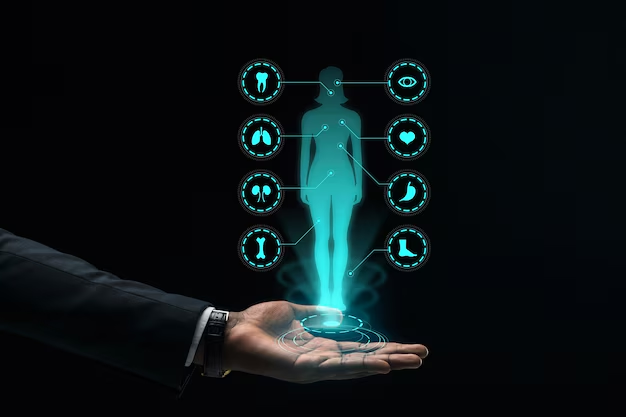The landscape of healthcare is changing rapidly, driven by advancements in technology, a deeper understanding of patient needs, and a growing focus on preventive care. As the world faces increasing health challenges—from chronic diseases to an aging population—innovative health management solutions are emerging to improve the overall quality of care. In this article, we explore some of the cutting-edge solutions that are shaping the future of health management and how they contribute to a healthier tomorrow.
1. Telemedicine: Revolutionizing Access to Healthcare
Telemedicine has transformed healthcare delivery by enabling remote consultations between patients and healthcare providers. With advancements in video conferencing tools and secure digital platforms, patients can now access healthcare services from the comfort of their homes. This has proven especially valuable in rural and underserved areas where healthcare facilities may be limited.
Telemedicine also allows for continuous monitoring of patients with chronic conditions, reducing the need for in-person visits while maintaining high-quality care. This not only enhances accessibility but also helps to reduce healthcare costs by minimizing unnecessary hospital visits and emergency room admissions.
2. Artificial Intelligence and Machine Learning in Health Management
Artificial intelligence (AI) and machine learning (ML) are playing an increasingly significant role in health management. These technologies can analyze vast amounts of medical data, identify patterns, and make predictions that are often beyond human capacity. AI-driven solutions are being used in areas like diagnostics, personalized treatment plans, and drug development.
For instance, AI algorithms can analyze medical images to detect conditions such as cancer, heart disease, and neurological disorders more accurately and faster than traditional methods. Machine learning models also help in predicting patient outcomes, assisting doctors in making informed decisions, and improving the overall efficiency of healthcare systems.
3. Wearable Health Devices: Empowering Individuals to Take Charge
Wearable health devices, such as fitness trackers, smartwatches, and medical-grade sensors, are transforming personal health management. These devices allow individuals to track vital signs like heart rate, sleep patterns, physical activity, and even blood glucose levels in real time. With continuous data collection, users can gain insights into their health trends and make proactive adjustments to their lifestyle.
For healthcare providers, wearable devices offer the ability to monitor patients remotely, especially those with chronic conditions. This real-time data can lead to more timely interventions, reducing the risk of emergencies and hospitalizations.
4. Personalized Health Management: Tailoring Care to Individuals
One of the most significant advancements in health management is the shift toward personalized care. Personalized health management involves tailoring healthcare services and treatment plans to individual patients based on their genetic makeup, lifestyle, and preferences. This approach has been made possible by advancements in genomics and data analytics.
By understanding a person’s unique genetic predispositions and health risks, doctors can design more effective and targeted treatment plans. This minimizes the trial-and-error approach that is often used in traditional medicine and improves patient outcomes by providing the right treatment at the right time.
5. Digital Health Records and Data Integration
The digitization of health records has revolutionized how healthcare professionals access and share patient information. Electronic Health Records (EHRs) and Electronic Medical Records (EMRs) are making it easier for healthcare providers to collaborate, ensuring that all team members have access to the same up-to-date information.
The integration of health data from multiple sources—such as hospitals, labs, pharmacies, and wearable devices—allows for a more comprehensive understanding of a patient’s health history. This data-driven approach enhances the accuracy of diagnoses and treatment plans, reduces medical errors, and improves coordination between various healthcare providers.
6. Health Management Apps: Keeping Wellness at Your Fingertips
Mobile health apps are becoming a staple for individuals who want to take a more active role in managing their health. These apps range from general wellness trackers to specialized tools for managing specific conditions such as diabetes, hypertension, or mental health disorders.
Health management apps offer features like medication reminders, symptom tracking, appointment scheduling, and even access to healthcare professionals. Many apps also provide educational resources to help users make informed decisions about their health and wellness, promoting a more proactive and engaged approach to personal healthcare.
7. Blockchain for Secure Health Data Sharing
As healthcare systems become more interconnected, ensuring the security and privacy of patient data is of utmost importance. Blockchain technology is emerging as a solution to securely store and share health data across multiple platforms, preventing unauthorized access and ensuring transparency.
With blockchain, patients have greater control over their health data, allowing them to grant access to their records only to authorized healthcare providers. This improves data privacy while also making it easier for patients to share their information across different healthcare systems for more efficient and integrated care.
8. Robotics in Surgery and Rehabilitation
Robotic technology has revolutionized surgery, offering improved precision, minimally invasive procedures, and faster recovery times. Robotic-assisted surgery allows for smaller incisions, reduced risk of infection, and less post-operative pain, leading to better patient outcomes.
In addition to surgery, robotics is also playing a role in rehabilitation. Robotic exoskeletons and assistive devices are helping patients recover mobility after traumatic injuries or strokes. These innovations are enhancing the quality of rehabilitation services and enabling patients to regain independence more quickly.
Conclusion
Innovative health management solutions are paving the way for a healthier future by enhancing the quality, accessibility, and personalization of healthcare. From telemedicine and AI-driven diagnostics to wearable devices and blockchain security, these technologies are reshaping how we approach health and wellness.
As these solutions continue to evolve, they hold the potential to not only improve individual outcomes but also create more efficient and equitable healthcare systems worldwide. By embracing these innovations, we can work toward a future where health management is more proactive, accessible, and effective than ever before.

